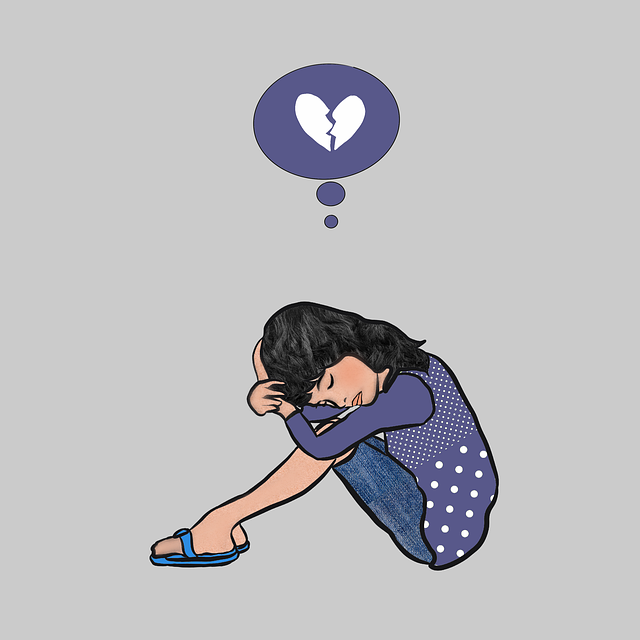Oregon's civil commitment laws balance public safety and individual rights, with Multnomah County prioritizing voluntary commitments. Local legal aid organizations, like Multnomah County Legal Aid Services (MCLAS), provide crucial guidance through complex processes, ensuring fair treatment and understanding of mental health laws. Involuntary commitment requires a petition, assessment, and court hearing, with committed individuals having rights to representation, appeal, and fair discharge plans facilitated by MCLAS. Community support includes non-profit services for recovery, reintegration, and specialized mental health programs.
“Are you familiar with Oregon’s civil commitment regulations? This comprehensive guide delves into the intricate details of understanding and navigating Oregon’s laws regarding involuntary commitment. From Multnomah County Legal Aid Services, which offer crucial support, to eligibility criteria and individual rights, we explore every step of the commitment process. Learn about resources available for committed individuals and gain insights into a complex yet essential aspect of mental health care in Oregon.”
- Understanding Oregon's Civil Commitment Laws
- Multnomah County Legal Aid Services
- Eligibility Criteria for Involuntary Commitment
- Rights of Individuals Under Commitment
- The Commitment Process and Timeframes
- Resources and Support for Committed Individuals
Understanding Oregon's Civil Commitment Laws

Oregon’s civil commitment laws are designed to balance public safety with individual rights, particularly in cases involving mental health and addiction issues. These regulations provide a framework for evaluating and confining individuals who may pose a risk to themselves or others due to their condition. Understanding these laws is crucial, especially for those seeking support from Multnomah County legal aid services.
The process typically begins with an assessment by a qualified professional, followed by a petition filed in court. In Multnomah County, as in other areas of Oregon, the focus is on voluntary commitment, where individuals agree to treatment while retaining some level of control over their lives. Legal aid organizations play a vital role in ensuring that citizens understand their rights and options throughout this process, providing guidance tailored to local regulations and legal precedents.
Multnomah County Legal Aid Services

Multnomah County, home to Portland, Oregon, offers a vital resource for individuals navigating complex legal matters, particularly in the realm of civil commitment. The Multnomah County Legal Aid Services (MCLAS) plays a crucial role in ensuring access to justice for all residents. This non-profit organization provides free and low-cost legal assistance to those who cannot afford private counsel. Their expertise extends to various areas, including mental health law, which is essential given the sensitive nature of civil commitment proceedings.
MCLAS offers a dedicated team of attorneys and advocates who are knowledgeable about Oregon’s civil commitment regulations. They assist individuals in understanding their rights, challenges, and options during this critical period. Whether it’s representing clients in court, providing guidance on discharge plans, or offering support for those facing involuntary commitment, MCLAS aims to protect the legal interests of its clients while fostering a better understanding of mental health issues within the community.
Eligibility Criteria for Involuntary Commitment

In Oregon, involuntary commitment regulations aim to balance individual freedoms with public safety. To be eligible for involuntary commitment, an individual must meet specific criteria set by state law. Typically, this includes a determination that the person presents a danger to themselves or others due to severe mental illness or addiction. The process often begins when a concerned family member, friend, or healthcare provider files a petition with the court.
In Multnomah County, legal aid services play a crucial role in assisting individuals navigating these complex regulations. These services provide guidance on eligibility criteria, help prepare necessary documents, and ensure fair representation during legal proceedings. They also offer support to those facing involuntary commitment, promoting understanding of their rights and options throughout the process.
Rights of Individuals Under Commitment

Under Oregon’s civil commitment regulations, individuals facing involuntary commitment have specific rights protected by law. These rights are designed to ensure fairness and due process during the commitment process. One of the key provisions is the right to legal representation. Those under consideration for commitment can request Multnomah County legal aid to assist them in understanding their options and defending against the commitment petition. This right ensures that individuals have access to justice and can challenge any allegations made against them.
Additionally, committed individuals have the right to appeal the decision and to receive a fair hearing. They are entitled to know the specific reasons for their commitment and can question evidence presented against them. These rights aim to protect vulnerable citizens from arbitrary or unjust commitments while ensuring that public safety remains a priority.
The Commitment Process and Timeframes

The commitment process in Oregon, especially within Multnomah County, is a legally defined pathway to ensure public safety and provide specialized care for individuals with serious mental health conditions. It begins when a concerned party, often a family member or healthcare professional, observes behavior indicating potential danger to self or others. This observation triggers the first step: filing a petition with the court, outlining the grounds for commitment. After this initial filing, a judge reviews the case and may issue an order for evaluation, requiring the individual to undergo a comprehensive assessment by mental health professionals.
The entire process is designed to be time-sensitive, aiming to balance urgency with fairness. Following the evaluation, a hearing is scheduled where evidence is presented, and the court decides whether to commit the person. If committed, the individual is placed in a suitable facility for treatment, typically with defined duration limits. This structured approach ensures that civil commitment regulations are administered efficiently while adhering to legal safeguards, particularly through the support of Multnomah County legal aid services dedicated to navigating these complex procedures.
Resources and Support for Committed Individuals

In Oregon, individuals who are subject to civil commitment face a unique set of challenges. Fortunately, there are numerous resources and support systems in place to assist them. One notable organization is Multnomah County Legal Aid, which offers free and low-cost legal services to those who qualify. Their experts can provide guidance on navigating the complex legal process, ensuring committed individuals understand their rights and options.
Additionally, various non-profit organizations and community groups have sprouted up to offer specialized support. These entities often connect committed folks with mental health professionals, peer support groups, and rehabilitation programs tailored to their specific needs. Such initiatives play a crucial role in fostering recovery and reintegration into the community.






